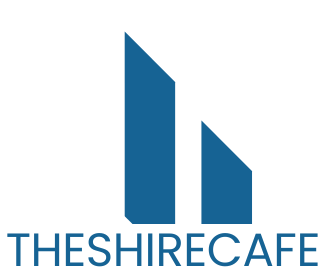House hacking isn’t just a trendy buzzword; it’s a savvy way to turn that mortgage monster into a manageable pet. Imagine living in your dream home while someone else pays your bills. Sounds like a fairy tale, right? Well, it’s time to turn that dream into reality.
With a little creativity and some strategic planning, anyone can unlock the power of house hacking. Whether it’s renting out a spare room or converting a basement into a cozy apartment, the possibilities are as endless as your imagination (and your to-do list). Get ready to dive into the world of house hacking, where financial freedom meets a side of fun. Who knew being a landlord could be this exciting?
Table of Contents
ToggleUnderstanding House Hacking
House hacking allows homeowners to offset mortgage costs while maximizing space. This strategy involves living in the property while generating income from renters.
What Is House Hacking?
House hacking refers to various methods that enable homeowners to share living space with tenants. This practice often includes renting out extra bedrooms, converting basements into rental units, or even utilizing entire guesthouses. By doing this, residents reduce their overall housing expenses significantly. Many homeowners find that this approach not only alleviates financial strain but also enhances property utilization.
Benefits of House Hacking
House hacking offers multiple financial advantages. Homeowners can cut their mortgage payments, enhancing cash flow. Additional income from tenants can fund home improvements, contributing to property appreciation. This method helps build equity faster, allowing for investment in other real estate ventures or savings. Many also appreciate the community aspect, as renting out space connects them with others. Overall, house hacking represents a practical way to leverage one’s property for enhanced financial stability.
Getting Started with House Hacking
House hacking begins with careful planning and evaluation. Understanding personal finances and property choices lays the groundwork for success.
Assessing Your Financial Situation
Evaluating income, expenses, and savings is essential. Current debts impact overall affordability. Budgeting software or spreadsheets assist in tracking expenses. Aiming for a mortgage that stays within a comfortable range prevents financial strain. Financing options, such as FHA loans, can make homeownership accessible. Analyzing potential rental income also adds clarity. This additional revenue often covers mortgage costs or utility bills. Consulting with a financial advisor can provide valuable insights tailored to individual circumstances.
Finding the Right Property
Location significantly influences property value and rental demand. Neighborhoods with amenities attract renters, enhancing occupancy rates. Property types, such as single-family homes or multi-units, offer diverse opportunities. Attention should focus on properties that require minimal renovations to reduce upfront costs. Understanding local zoning laws is crucial for compliance and future plans. Each property should be assessed for potential income based on rental market trends. Networking with real estate agents can reveal properties that align with house hacking goals.
Tips for Effective House Hacking
House hacking requires careful consideration and strategic planning. Effective management of tenants and agreements plays a crucial role in maximizing income potential.
Choosing the Right Roommates or Tenants
Selecting suitable roommates or tenants significantly impacts the house hacking experience. Assess potential tenants’ backgrounds and references to ensure compatibility. Prioritize individuals with stable incomes and respectful behavior. Setting clear expectations from the start can foster a positive living environment. Engaging in interviews allows property owners to build rapport and gauge compatibility. Always communicate house rules upfront to avoid future misunderstandings. Balancing personalities can lead to a harmonious household, mitigating potential conflicts later on.
Setting Up Rental Agreements
Implementing clear rental agreements serves to protect both the property owner and tenant. Utilize written contracts to outline terms and conditions comprehensively. Ensure agreements cover crucial aspects like rental rates, payment schedules, and duration of the lease. Including provisions for maintenance responsibilities can clarify expectations. Clarifying deposit amounts and conditions for return is essential. Establishing communication channels can enhance tenant relations. Review local laws to ensure compliance and enforceability of the rental agreement. Adhering to these guidelines helps in minimizing disputes and maintaining a stable rental environment.
Common Mistakes to Avoid
House hacking can lead to financial success, but avoiding pitfalls is crucial for maximizing benefits. Here are key mistakes to steer clear of.
Overestimating Rental Income
Homeowners often project rental income based on ideal scenarios rather than realistic figures. They overlook local market rates, which can differ significantly from expectations. Understanding comparable rental properties helps set accurate price points. Additionally, homeowners should factor in potential vacancies and maintenance costs when calculating expected income. Relying solely on optimistic projections can strain finances and lead to disappointment. Researching local rental trends is vital for making informed decisions.
Ignoring Property Maintenance
Neglecting property upkeep can create long-term costs that outweigh immediate savings. Ignoring routine maintenance tasks such as plumbing or electrical issues often leads to more severe problems later. Proactively addressing repairs fosters tenant satisfaction and reduces turnover rates. Setting aside a portion of rental income for maintenance allows for timely repairs and renovations. Developing a maintenance schedule keeps properties in good condition and preserves their value. Regular inspections contribute to a smoother rental experience and financial stability.
Conclusion
House hacking offers a unique opportunity for homeowners to ease their financial burdens while enjoying their living spaces. By creatively utilizing available space and carefully selecting tenants, they can create a sustainable income stream that contributes significantly to mortgage payments.
With proper planning and a clear understanding of local market conditions, homeowners can navigate the challenges of renting out portions of their homes. Embracing this strategy not only enhances financial flexibility but also fosters a sense of community.
Ultimately, house hacking can transform the way individuals approach homeownership, paving the way for greater financial freedom and a more fulfilling living experience.



